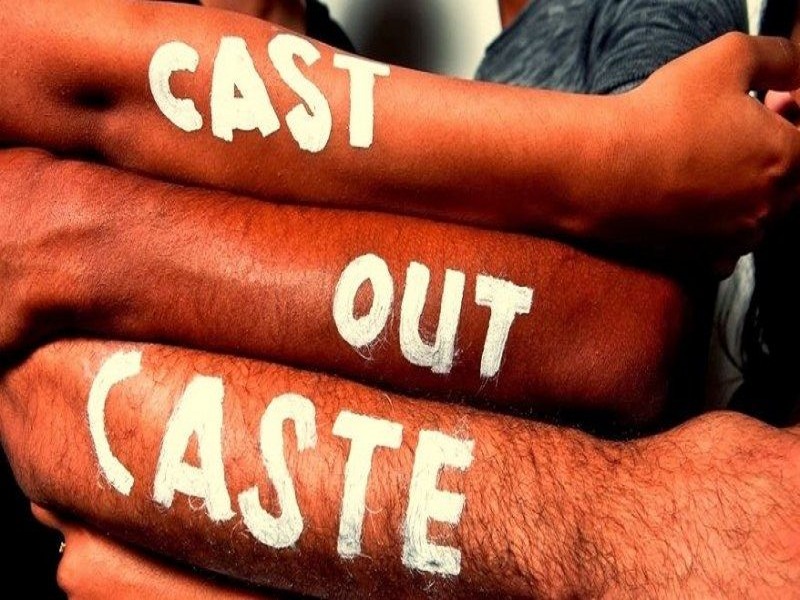With nearly 4 million pending cases in its court systems, India has probably one of the busiest judiciaries in the world. Yet every now and then, a local court case makes international headlines. This happened recently when a court in Kerala sentenced 10 men to life in prison for killing a man.
The crime had all the hallmarks of an honor killing. A young man, a Dalit from a low caste, falls in love with a woman from a high-caste family. They plan to marry, but the girl's family learns about it and opposes their union. When the couple files for a marriage certificate, the family decides to take action and dispatches a hit team to get rid of the soon-to-be husband. Shortly after, the young man's body is found in a stream.
Crimes of this nature have become so disturbingly common that the world barely bats an eye when they happen. But in America, which is predominantly Christian, the reaction is often, It's just another one of those Hindu family fights over old religious traditions.
Except that wasn't the case this time. Both the young man and the woman were Christians and came from Christian families.
Caste prejudice -- the idea that some people are inferior or even untouchable because of their low birth -- has not only survived throughout millennia, robbing millions of people of their humanity. It also has metastasized and spread beyond its original religious confines.
Caste prejudice and hatred exists among Hindus, Muslims, Buddhists, Sikhs and, yes, among Christians, too. And it exists between religions. In another recent case, a Dalit Christian man was killed by hit men hired by his wife's father, the patriarch of an upper-caste Hindu family. The father ordered his son-in-law's murder, despite knowing his daughter was pregnant.
The caste system has plagued India and South Asia for centuries, but it hasn't remained isolated to the region. It has been exported overseas to America, Europe, Africa, Australia and other parts of the world. There have been incidents of caste-incited killings among Sikhs in Austria and Canada. In America, a recent survey found caste prejudice exists in the South Asian communities, manifesting itself in workplace and education discrimination.
The caste system persists to this day because India has failed to abolish it by law. While the Indian Constitution outlawed "untouchability" -- the practice of physically marginalizing Dalits and low-castes from social activities such as sharing eating utensils, entering temples, drinking water from the same well or marrying people from higher castes -- it did not find a way to make the caste system itself illegal. Today, India is paying for this failure.
India has grown into the largest democracy in the world. Yet even as it becomes one of the top economies on the planet, it continues to struggle to form a cohesive national identity. The caste system has handicapped India's development, divided its citizenry, stoked religious tensions and consigned hundreds of millions of Indians to severe poverty. It's one of the forces behind India's income inequality, which is the highest in the world. Nearly one third of India's population lives below the poverty line.
Abolishing the caste system is the unfinished job the Indian parliament needs to accomplish. The problem is that any attempt to get rid of it evokes massive opposition from many upper-caste groups and politicians. In some parts of the country, politicians turn a blind eye toward crimes against Dalits because they don't want to lose the patronage of the upper caste elites.
Even in the U.K., where the Dalits wanted the caste system to be brought under the ambit of the equality law, the rich and powerful upper-caste lobby managed to get former Prime Minister Theresa May's government to withdraw a bill that would have outlawed caste discrimination.
Despite being a minority, the upper-caste community imposes this system, socially and economically, on the majority population. Studies have found that India's upper castes own 41% of the country's wealth. The sad truth is that this system will not be completely eradicated until those at the top rise up against it. Like Abraham Lincoln and William Wilberforce's efforts to abolish slavery in America and England, India needs its own social movement launched and led by upper castes to dismantle the caste system.
Even though caste-ism is not the same as racism, the Dalits are not unjustified when they say that it is actually worse. The sheer size and longevity of the inhuman oppression, exploitation and violence unleashed against them makes it one of the biggest human rights issues of our time.
The fight against caste discrimination also should bring together India's religious leaders -- Christians, Muslims, Hindus, Sikhs and Buddhists. For as long as the caste system is in place, there will not be economic, social or religious equality. And as long as it's perpetuated by unscrupulous politicians -- such as the speaker of the lower house of India's parliament who last week said Brahmins are superior -- the deep-seated prejudice against low castes will remain.
The caste system has oppressed millions of men, women, and children for more than 2,000 years. It's time to abolish it.
Most Rev. Joseph D'Souza is founder of Dignity Freedom Network, archbishop of the Anglican Good Shepherd Church of India, and the president of the All-India Christian Council.
Source: Washington Examiner
0 COMMENTS



